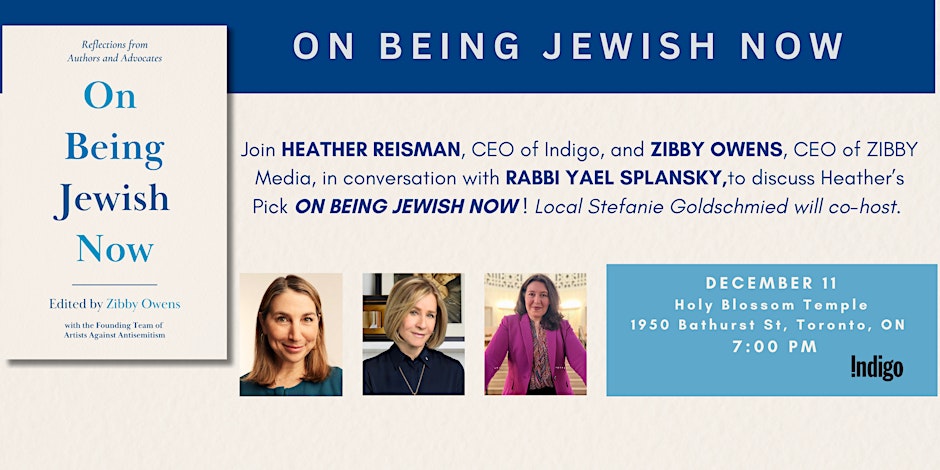Back in 1963, the late Philip Roth wrote an essay for Commentary entitled “Writing About Jews.” It’s a powerful manifesto about the purpose of fiction—one incidentally about postwar Jewish America—but with broader relevance. Is the point of an individual novel or short story to portray all of humanity, or something specific about human nature via a handful of characters or even one protagonist? Is it the responsibility of artists from minority communities to depict their fellow group members in a flattering light, or even to attempt to achieve an accurate sweeping overview of the group in question?
Roth did not hand-wring about any of this: “Fiction is not written to affirm the principles and beliefs that everybody seems to hold, nor does it seek to guarantee us of the appropriateness of our feelings.”
Moreover, he wrote, it is not a novel or story’s responsibility to replicate sociology, but rather to showcase aspects of human nature eluded by other avenues:
“The test of any literary work is not how broad is its range of representation—for all that breadth may be characteristic of a kind of narrative—but the depth with which the writer reveals whatever it may be that he has chosen to represent.”
Roth specifically took issue with Jewish communal leaders and members of the Jewish community press, who saw his depictions of Jewish adulterers and the like as unseemly, especially so soon after the Holocaust. They were, per Roth, missing the point:
“[L]ooking at fiction as they do—in terms of ‘approval’ and ‘disapproval’ of Jews, ‘positive’ and ‘negative’ attitudes toward Jewish life—they are likely not to see what it is that the story is really about.”
Roth wrote for general readerships, but also understood himself as in a competition of sorts with Jewish leaders over Jewish audiences:
“If there are Jews who have begun to find the stories the novelists tell more provocative and pertinent than the sermons of some of the rabbis, perhaps it is because there are regions of feeling and consciousness in them which cannot be reached by the oratory of self-congratulation and self-pity.”
At first, when reading Roth here, I thought, they’re mad about Portnoy’s Complaint, but then I remembered the year: 1963. Portnoy was only published in 1969. Look how furious people were at him in the early 1960s! Little did they know.
The fault line, for ’60s Philip Roth, had been art versus parochialism. Universalism and individualistic greatness—and freedom—versus being a timid little mouse worried what non-Jews would think, worried about propriety and respectability. And the question at hand was about the works themselves—how were Jews depicted within stories written by Jewish authors, authors informed by their own experience.
Today, the fault line is something else altogether.
***
Now in 2024, the question is where an author stands on Israel, Palestine, Gaza, Zionism. All authors are kind of pressed on this, as with the Giller Prize, wherein a bunch of people decided that accepting $100,000 for fiction-writing was complicity with genocide—primarily due to sponsor Scotiabank retaining a stake in Israeli arms manufacturer Elbit Systems. The bank’s name was removed from the Giller Prize branding this year, but its award-funding remained. Behold, a recent CanLit intiative, of sorts, one that reads like an attempt at pleasing everyone, but that wound up pleasing no one.
(Yes, I preferred Roth’s literary manifesto to the social media statement by Anne Michaels, who won the 31st annual Giller for her latest novel, Held.)
But writers who are Jewish—an identity Michaels could claim but doesn’t seem keen on, at least not consistently—are in a particular bind. It’s not something they can sit out, either. Simply existing as a Jew, the odds are too great that you are or were affiliated with a Hillel House or a falafel shop or whatever it is that is Bad Now and that you must either ceremonially renounce or affirm.
Artists and writers of all faiths and backgrounds now sign petitions and open letters, post to social media, pin affiliations to their backpacks, put emojis in their bios, and yes, engage in more substantive political organizing and donating. Whether you’re Team Sally Rooney or Team Mayim Bialik is not a matter of where you stand on Normal People versus The Big Bang Theory, or not straightforwardly.
***
When is a book a Jewish book, and when—if ever—can it just be a book? What was once an arcane question for (say) people determining the recipients of Jewish book awards, or where to shelve which novels in a bookstore, has taken on a new urgency.
In the 1960s inhabited by Philip Roth, the horizon was one where a writer of any background could become a Great. “‘The epithet American-Jewish writer has no meaning for me,’ he said. ‘If I’m not an American, I’m nothing.’” These are not the remarks of someone transcending all barriers (“American” isn’t universal!) but the gist was, he didn’t want to be relegated to a hyphenated sphere. He was too ambitious for such a small pond. In recent years, as I discussed in a different Jewish media outlet in 2016, Roth has gotten lumped in with straight white male literature—recognized, at last, as the just-American artist he’d hoped.
The currently active English-language Jewish writers must choose between two mid-sized ponds. Either you join up with the literary community for Palestine or the literary community for the-fight-against-antisemitism. Either you’re aligned with the indie bookstores and the MFA professors and the Bluesky-posting scolds with literary friends and Free Palestine in their bios, or you’re aligned with some coalition of anti-woke gazillionaires (despite, if you’re a working writer, not being a gazillionaire or close yourself), woke-but-for-this-issue influencers, and genuinely terrified Jews who are neither rich nor anti-woke but don’t know where else to turn. The cringe expression, politically homeless, comes to mind, but it isn’t quite that. Some of these are writers who just want to write, and not to have to function as poorly informed experts on geopolitics.
Witness the recent debacle at Broken Pencil, the small-press literary magazine founded in 1995 by Hal Niedzviecki as a platform to champion the then-exploding culture of homemade print media—generally called zines—tethered to an anti-establishment worldview. The publisher never considered feelings about antisemitism and the Middle East to be part of his role, but Niedzviecki’s refusal to turn his project into a site of anti-Israel activism put him at odds with current expectations:
“Recent events, including online harassment over my personal beliefs, a petition demanding that I resign from the publication I founded, that the magazine formally support the boycott, divest and sanction Israel movement and devote an entire issue to the conflict in Gaza, and the withdrawal of authors and sponsors from our Canzine festivals in Ottawa and Toronto, are emblematic of a broader issue,” he wrote in a closing statement.
“This cultural environment has become incompatible with the values of free speech, independent thought, and meaningful dialogue.”
But there’s currently no such thing as a zine existing entirely out of politics. Anything literary that is however indirectly connected with ‘Zionism’ in its loosest possible definition is tainted. Remember the independent literary magazine Guernica? Remember the book Tablets Shattered? (If not, their surrounding culture-war battles have been dissected during the past year on the podcast Bonjour Chai.) There’s the added irony of a purity-politics antizionism backfiring and amounting to the silencing of voices most critical of Israel.
There isn’t an art for art’s sake alternative. If you say that’s your deal, that you’re just trying to write the stories you’re burning to tell, then one side or the other—or maybe both—will cast you as an enemy agent, callously indifferent to dead and maimed Gazan children, or disloyal to the existentially threatened Jewish people.
***
If you’re not on board with a literary world that’s all about things like the From the River to the Sea colouring book (a real thing sold at a retailer near me), you can instead align yourself with Indigo over your local independent bookstore, and with a burgeoning literary-world anti-antisemitism movement. You can patronize Starbucks over the more charming coffee shop down the street that has a donate-to-Palestine option. Corporate or cool. What if you’re neither? What if you just want to write?
Well, you can side with Zibby Owens, an author and bookfluencer—and daughter of Republican billionaire Stephen Allen Schwarzman—who put together an anthology called On Being Jewish Now. Why is reality TV icon Jill Zarin, of Real Housewives fame, being published alongside critic Daphne Merkin? Who are these 75 contributors, apart from being Jewish, largely female, and well-connected enough to be asked to contribute. What do they have in common? What do they represent?

I have not (yet?) read it, but feel confident in saying that an anthology of writers and non-writers where everyone had three weeks to compose their contribution (three weeks also spent, presumably, doing whatever else they have to do) is going to be a different category, literarily, than Philip Roth. It’s to be judged as an activist effort more than an artistic one. Insofar as these can be separated.
There are the literary magazines that won’t taint themselves with ‘Zionists’ however defined (is this ever defined?) and the ones that pop up in response. The endless forum discussions about how to publish in these times if you’re Jewish, if your work is identifiably Jewish, if you are known to be a supporter of Israel.
An apparatus of institutions is emerging or re-energizing. A Jewish identity-based literary sphere, with motifs familiar from identity lit more commonly associated with the left, but affiliated with the centre or right. There is the newly formed Substack-hosted Judith Magazine. Canada’s own Nora Gold runs a journal called Jewish Fiction. There are Artists Against Antisemitism, pre-supposing, in its name, the artists in favour of it. It seems like you could be an Artist Against Antisemitism and an Artist 4 Ceasefire—war and antisemitism, not good things!—but can you, though?
And what if you just want to be an artist?
At a moment when all art is interpreted as engagé, and when there is only one issue to be engaged about, Jewish writers who just want to write are in a weird spot. This time around, the pressure comes from within the community and outside of it, going in different directions.
The CJN’s opinion editor Phoebe Maltz Bovy can be reached at [email protected], not to mention @phoebebovy on Bluesky, and @bovymaltz on X. She is also on The CJN’s weekly podcast Bonjour Chai. For more opinions about Jewish culture wars, subscribe to the free Bonjour Chai newsletter on Substack.
Author

Phoebe is the opinion editor for The Canadian Jewish News and a contributor editor of The CJN's Scribe Quarterly print magazine. She is also a contributor columnist for the Globe and Mail, co-host of the podcast Feminine Chaos with Kat Rosenfield, and the author of the book The Perils of “Privilege”. Her second book, about straight women, will be published with Penguin Random House Canada. Follow her on Bluesky @phoebebovy.bsky.social and X @bovymaltz.
View all posts








